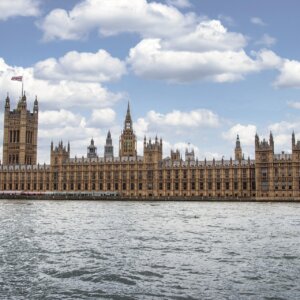VAT on private schools and managing this burden
It has been the intention of the Labour party to apply VAT on private schools for some time. In fact, it was in both their 2019 and 2024 election Manifestos. With a Labour government now in power, this is likely to take place soon.
There is also an intention to withdraw business rates relief from these schools. However, it does appear that Labour has now reversed its plan to remove charitable status from independent schools (which allows for other tax reliefs).
Currently, registered independent school are an “exempt” supply for VAT purposes. Additionally, goods and services closely related to education are also exempt from VAT for registered independent schools.
There is also a separate VAT exemption for charities or not-for-profit entities. This applies where they supply education or vocational training under certain circumstances.
When will VAT on private schools apply?
The government published further information on 29 July 2024. It is the intention that VAT will be introduced from 01 January 2025.
How would VAT on private schools affect their school fees overall?
Businesses which make taxable VAT supplies can set-off the amount of VAT which it has itself paid on goods and services supplied to it incurred for the purposes of the business. VAT charged on capital expenditure, such as new school buildings or energy infrastructure projects, can in many circumstances also be recovered.
Because of this, a 20% VAT charge is unlikely to mean a 20% increase in fees. This is because VAT in part, will be able to be recovered from expenditure elsewhere.
Depending upon the exact nature of the legislation put forwards, certain supplies made by schools could be separated. This could mean that any new VAT charge would not apply to certain elements. This could include transport services or after school care services. However, we do feel that legislation is likely to be included allowing VAT on most separated services relating to education.
It has also now been confirmed that boarding fees would be labile for VAT. The 2024 Labour Manifesto endorses the calculations undertaken by the Institute for Fiscal Studies (IFS) in its July 2023 report. This report makes the assumption that that VAT will also be imposed on fees from boarding.
Will VAT on private schools be levied for payments made in advance?
The simple answer is almost yes. The Labour Party has already confirmed that anti-forestation rules will be included in any legislation regarding VAT on private schools.
Despite this, it has been widely reported that pre-paid contracts at Eton College, one of the most prestigious in the world (and where boarding costs £49,998 per annum) have increased almost four-fold from £2.64 million two years ago to £10.1 million in 2024.
The government published clarity on this on 29 July 2024. It confirmed that VAT will be chargeable on any advance payments made from this date, for terms starting in January 2025 or later.
Other tax efficient options to reduce tax on school fees – trust structures
Whilst there may be no solution to removing VAT on private schools, once applied, other options can help reduce the tax burden of school fees. One option is the formation of a Trust structure, which is a popular option for grandparents looking to provide financial support. In these circumstances these are often referred to as an educational trust.
What is a trust?
There are diverse types of trusts which are each taxed differently. The type of trust which is utilised will depend upon an individual’s personal circumstances. This is something we can discuss with clients.
Trusts can be set up so a named beneficiary has the absolute right to any trust income. This beneficiary is often also referred to as the life tenant of the trust.
This is particularly useful in a family context. It provides flexibility to which family members benefit and to what extent to meet changing financial needs into the future.
The basic structure of a trust involves the following:
- the ‘settlor’ which is the person who puts assets into a trust
- the ‘trustee’ which is a person(s) who manages the trust
- the ‘beneficiary’ which is a person(s) who benefits from the trust
Trusts are typically used where the settlor wishes the trustees to have maximum control over the assets held within the trust. It further provides trustees with a high degree of control and flexibility on the distribution of income and capital for the beneficiaries.
For tax purposes, it will be important that a settler is prohibited from receiving any benefit from a Trust. If a settler is not specifically excluded from the benefit, then they may still be liable for tax on any income distributed to the trust.
Structuring Trusts
A trust can be structured in many ways as regards the income and capital and the rights of beneficiaries. However, as the trust assets are legally owned by the trustees this acts as a form protection from the beneficiaries. An example of this is during a divorce. There are also additional ways to structure a Trust.
For example, a ‘revocable life interest’ on the beneficiaries can provides power to the trustees regarding the rights to income and capital a beneficiary may receive. This can be revoked at any time.
You may wish to cease the beneficiaries right to income once they attain a certain age, for example post education. This is possible within the structure of a trust. Additionally, specific requirements on what a disbursement from a trust can be applied (for example, school or university fees or related expenses).
The benefits of a Trust structure
The taxation of trusts for IHT, income tax and CGT purposes differs and can provide benefits. For example, for distributions from the trust, it uses the personal allowances and lower tax rates of the beneficiaries rather than that of the settlers. in many circumstances, this can make significant tax savings.
Inheritance Tax
Lifetime gifts into trusts are chargeable lifetime transfers (CLTs). A gift up to value of the Nil Rate Band (NRB) of £325,000 can be gifted to a trust without triggering an immediate IHT charge.
A CLT within the NRB will not create an immediate IHT charge. Additionally, provided that the settlor survives the gift by seven years then no IHT will be payable. Once in the trust, the value of the assets will not fall within the estate of any person. Business Property Relief (BPR) is available on certain assets, such as trading company shares.
It is worth noting that there is a 10-year anniversary IHT charge on trusts. Because the trust assets are not included in the taxable estate of the beneficiaries or any individual, the trust itself will be assessed to IHT every 10 years.
Income Tax
The income tax treatment will depend on whether the trust income is mandated directly to the beneficiary or is paid to them via the trust.
If the trustees choose to mandate the income to the beneficiary directly, they will not need to report it on the trust’s tax return. Instead, the income will be taxable on each beneficiary via their own tax returns.
If investment income is not mandated to the beneficiary, then the trustees are liable for income tax at the basic rate. This is regardless of how much income arises. The net of tax income will then be transferred to the beneficiaries and taxable on them personally.
Any tax paid by the trust will be available as a tax credit on their individual tax returns. For basic rate taxpayers, no additional tax will need to be paid. However, for a higher rate taxpayer there will be additional tax due.
Steps to take now regarding VAT on private schools
it has been confirmed that VAT will be charged on private school fees from January 2025. Accordingly, other avenues should be explored to reduce this additional cost burden.
For an individual looking to support somebody with school fees, such as grandparents or other relatives (apart from parents, where the tax rules are different) looking for more tax efficient ways to make payments, trust structures should be considered. This can be particularly effective to reduce inheritance tax.
School themselves should take several steps ahead of any changes. These should include:
- Perform accounting analysis to estimate a school’s exposure to VAT.
- Prepare a breakdown of any areas of a school’s fees to identify any areas which may remain exempt from VAT or zero rated.
- Look to defer capital expenditure projects where there are currently irrecoverable VAT costs. These may be eligible for VAT refunds post legislative changes.
- Reviewing terms & conditions/contracts to ensure they have the contractual right to charge VAT in addition to existing fees. Making amendments where necessary.
Alexander & Co – expert advice on personal and business tax
Alexander & Co provides a wider range of wealth protection, inheritance tax and succession planning advice. This includes the setting up of trusts in the most effective manner, through to the preparation of trust and estate accounts and returns.
Services frequently provided to our trust clients include:
- Preparation of trust and estate Self Assessment Tax Returns
- Finalising of a deceased’s tax affairs to date of death
- Preparation of statements of estate income and completion of forms R185 for estate income distributions to beneficiaries, during the administration period and for trust beneficiaries
- Calculating the inheritance tax position on trusts and estates. The completion of any necessary inheritance tax forms and agreeing with HMRC any liabilities
- Capital Gains Tax Planning for estate and trust beneficiaries
- Active estate planning to minimise future inheritance tax liabilities
- Preparation of trust and estate accounts, including interim accounts, where required
Contact one of our specialist trust accountants today to find out how we can assist you.





